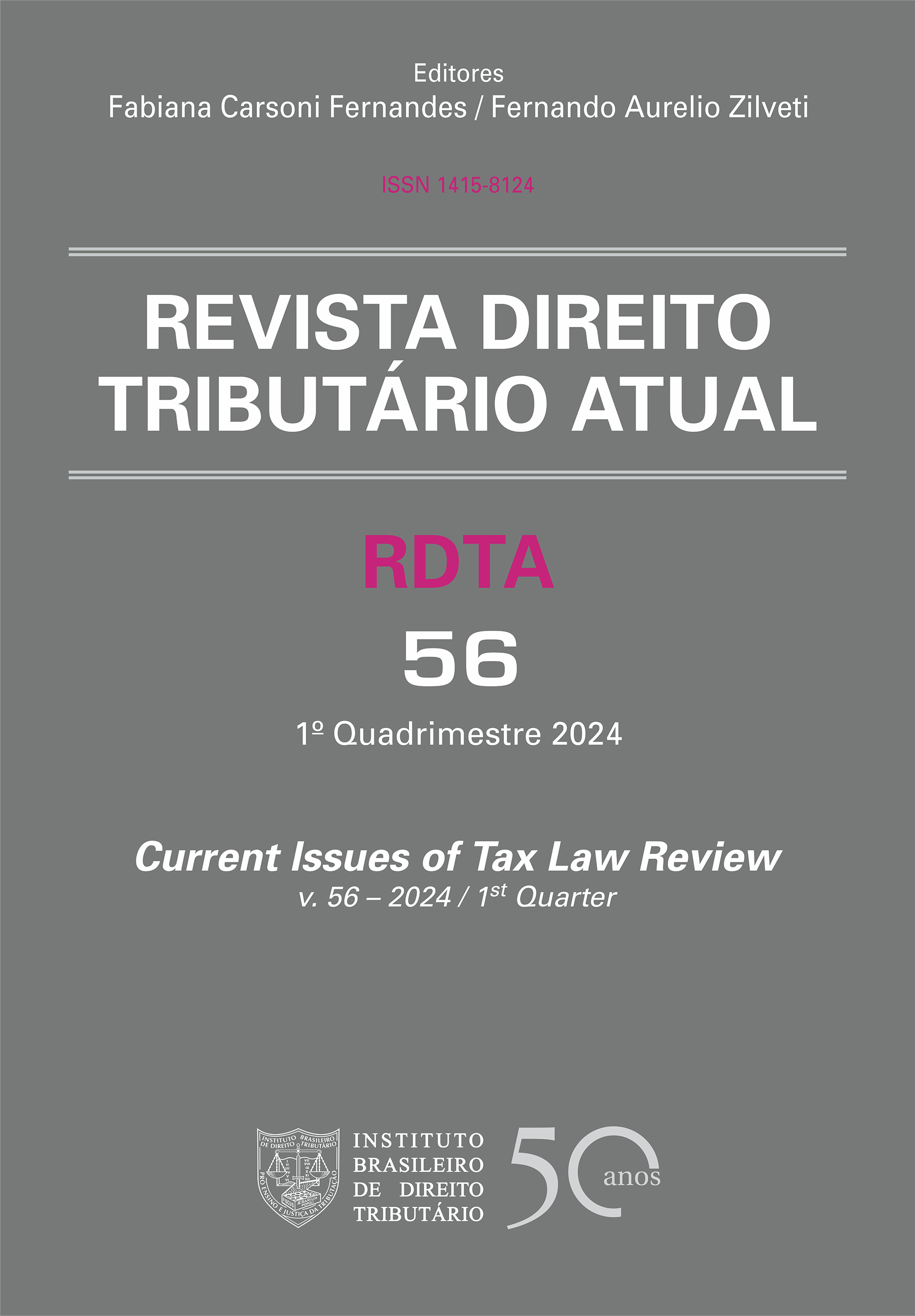Constitutional Limits to the Institution of Consumption Taxes
DOI:
https://doi.org/10.46801/2595-6280.56.31.2024.2542Keywords:
consumption taxes, constitutional limits on the legislator, constitutional interpretation, expressed, implicit, presupposed, implied meaningsAbstract
The purpose of this article is to demonstrate that the constitutional limits imposed on the institution of IBS and CBS by means of a complementary law cover not only those that are expressed in the constitutional language, but also those that are implicit in the content of constitutional provisions and those that are presupposed or implied by it. To cope with this task, the formal constitutional limits are reconstructed in the first part of this article and, in the second, the material constitutional limits. The examination of the formal limits allows us to conclude that the complementary law establishing the IBS and CBS cannot alter general rules of Tax Law established in a uniform manner for all federal entities and for all taxes. The investigation of the material limits leads to the conclusion that the IBS and CBS can only be levied on legal transactions habitually practiced by individuals or legal entities, resulting from the exercise of economic activity, practiced with the purpose of allocating goods or services for consumption and inserted in general in an economic cycle involving several stages that go from its production to its consumption, as long as they are not covered by the ordinary private competences of other federal entities.
Published
How to Cite
Issue
Section
License
Copyright (c) 2024 Humberto Avila

This work is licensed under a Creative Commons Attribution-NonCommercial-ShareAlike 4.0 International License.
O autor (ou coautor) declara que o artigo submetido à avaliação, que segue em anexo, é de sua autoria, e inédito, comprometendo-se a não publicar este artigo em qualquer outro meio, impresso ou digital, mantendo a exclusividade para a Revista Direito Tributário Internacional Atual, cedendo, em caso de aprovação do trabalho, os direitos autorais à Revista para fins de publicação do trabalho nesta edição.





